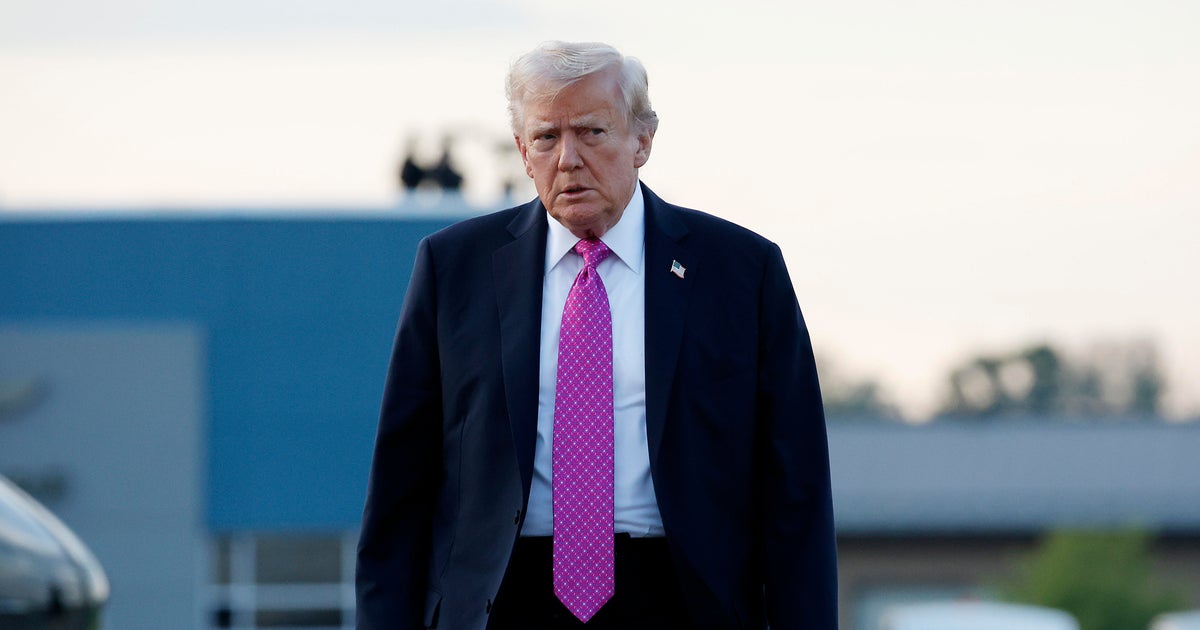
Washington — In a controversial ruling on Friday, the Supreme Court granted President Trump’s administration the power to withhold over $4 billion in foreign aid funding, backing its request for emergency relief in a legal battle over funds that Congress had already approved. This decision prolongs an earlier directive from Chief Justice John Roberts, which temporarily froze a district court injunction mandating the administration to allocate the money for foreign-aid initiatives by the end of September.
The high court’s decision, which appeared to divide the justices 6-3, was met with dissent from the three liberal justices: Elena Kagan, Sonia Sotomayor, and Ketanji Brown Jackson. The Court’s unsigned order indicated that the potential harm to the executive branch’s capacity to conduct foreign affairs outweighed the possible damage faced by the plaintiffs, composed of organizations and businesses reliant on funding for foreign aid projects. The Court emphasized that this ruling should not be interpreted as a final judgment on the matter, but rather a preliminary assessment in line with standards for interim relief.
The legal dispute centers around over $4 billion that Congress earmarked last year for foreign aid, which includes overseas development assistance, peacekeeping operations, and initiatives to promote democracy. Last month, President Trump notified Congress of his intention to rescind $4.9 billion by the end of the fiscal year on September 30, employing a controversial tactic known as a “pocket rescission.” This maneuver has been deemed illegal by the Government Accountability Office.
Despite the legal questions surrounding the pocket rescission, the Supreme Court’s ruling indicated that the government had presented a “sufficient showing” at this stage, suggesting that the Impoundment Control Act—the law governing the president’s ability to cancel appropriated federal funds—precludes the plaintiffs’ lawsuit. This suit sought to compel the president to comply with the appropriations law passed last year.
In her dissent, Justice Kagan highlighted the significant implications of this case, emphasizing the delicate balance of power between the executive branch and Congress. “The consequence of today’s grant is significant,” Kagan remarked. “The effect of its ruling is to allow the Executive to cease obligating $4 billion in funds that Congress appropriated for foreign aid, and that will now never reach its intended recipients. Because that result conflicts with the separation of powers, I respectfully dissent.”
The legal battle began in February when nonprofit organizations and development firms challenged the Trump administration’s 90-day suspension of foreign development assistance, initiated to assess whether these programs aligned with the president’s foreign policy objectives. Since then, the case has traversed the courts, including a prior Supreme Court ruling in March that permitted the government to satisfy approximately $2 billion in foreign aid invoices for work that had already been completed.
In the most recent developments, a three-judge panel from the U.S. Court of Appeals for the District of Columbia Circuit ruled that the nonprofits and businesses could not sue on the grounds that the administration had violated the separation of powers by unilaterally choosing not to spend the congressionally approved foreign aid funds. The panel voted 2-1 to overturn a previous order from U.S. District Judge Amir Ali that had prevented the government from withholding funds allocated by Congress for foreign assistance programs.
However, the D.C. Circuit panel later issued an amended ruling, allowing the nonprofits and businesses to pursue relief on different legal grounds. Following this decision, President Trump informed Congress of his plan to rescind the $4.9 billion in foreign aid, citing his belief that many of these programs were wasteful and did not align with his “America First” foreign policy agenda.
Subsequently, the plaintiffs filed a new request for preliminary relief with Judge Ali, who determined that the Trump administration was obligated to comply with Congress’s directives by expending the $4 billion by the end of the fiscal year. The Trump administration then sought to freeze Ali’s ruling, and when the D.C. Circuit declined to do so, the administration turned to the Supreme Court for intervention.
In a filing with the Supreme Court, Solicitor General D. John Sauer warned that Judge Ali’s injunction posed a “grave and urgent threat to the separation of powers.” He argued that the president needed to maintain a unified voice in foreign affairs and that the district court’s ruling forced the executive branch to act against its own objectives.
Conversely, the plaintiffs’ legal representatives argued that the government was obligated to use the funds approved by Congress for specific purposes since at least March 2024. They contended that the appropriations legislation enacted by Congress last year was binding on the executive branch, stating, “The upshot of the government’s theory is that Congress’s signature law meant to control impoundments actually provided the President vast new powers to impound funds, and made it virtually impossible to challenge impoundments in court. Congress would not have enacted such a self-defeating statute.”
The plaintiffs expressed concern that allowing the president to withhold foreign aid funds would jeopardize the viability of organizations dependent on federal support for overseas projects. For instance, Democracy International reported that 98% of its revenue in 2024 was derived from awards from the U.S. Agency for International Development, leading attorneys to warn that the organization could face bankruptcy if the appropriations were not utilized.
“The pocket rescission of democracy promotion funds is an existential threat to Democracy International,” the plaintiffs asserted, underlining the far-reaching implications of the Supreme Court’s ruling on U.S. foreign aid and its potential impact on global democracy initiatives.


